Based on What You Have Read Which of the Following Exemplifies the Meaning of Leave No Trace
We love seeing and then many folks enjoying outdoor recreation, but we don't similar outdoor wreckreation. With the increased visitation to the outdoors, we're seeing too many of our cute spots damaged here, here, and here.
Whether information technology's leaving trash on the trail or your poop, we think it's as good a time as ever to (re)introduce the Leave No Trace 7 Principles for those of you who don't know them, forgot them, or are just now finding out that there'due south something called the "Go out No Trace Principles." If you desire more particular, y'all can read about them here.
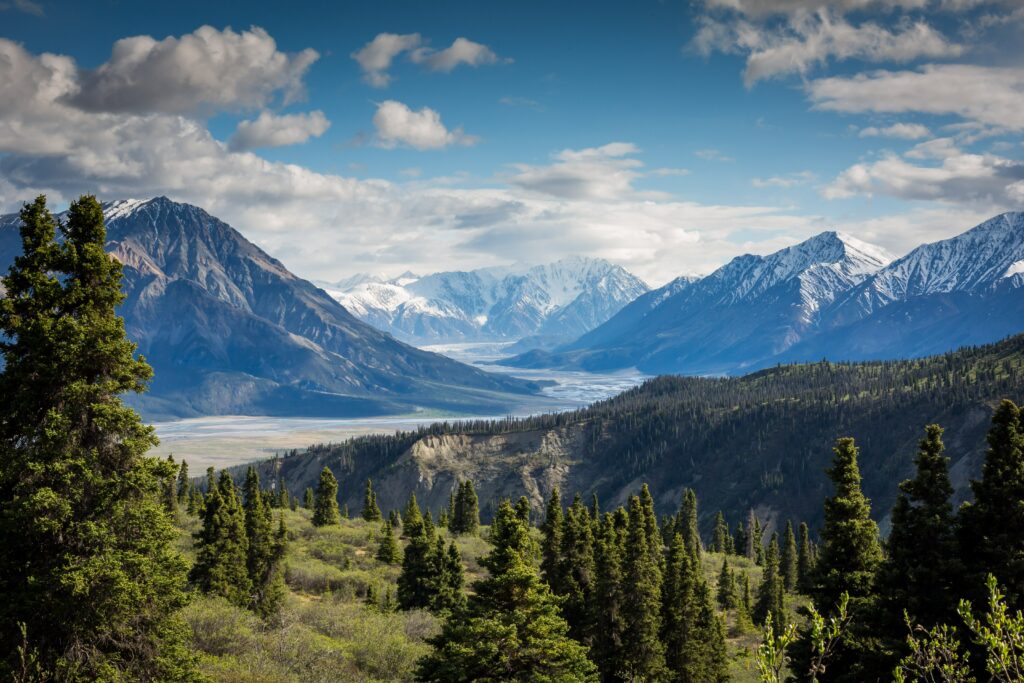
What Does Get out No Trace Mean?
"Leave No Trace" is exactly how information technology sounds. Wherever you explore, make it so that the next person who visits would never know you were there at one point.
The Exit No Trace Seven Principles are a framework for minimizing our impact and protecting the outdoors. Information technology isn't a gear up of rules, but more of a state of mind and lifestyle that anyone who loves the outdoors would find enlightening.
By practicing these principles in our everyday lives, we protect the places we beloved to explore.
The 7 Principles utilise to all activities exterior and comprehend everything from the backcountry to your backyard.
Here are some helpful tips to contain them into your adventures.
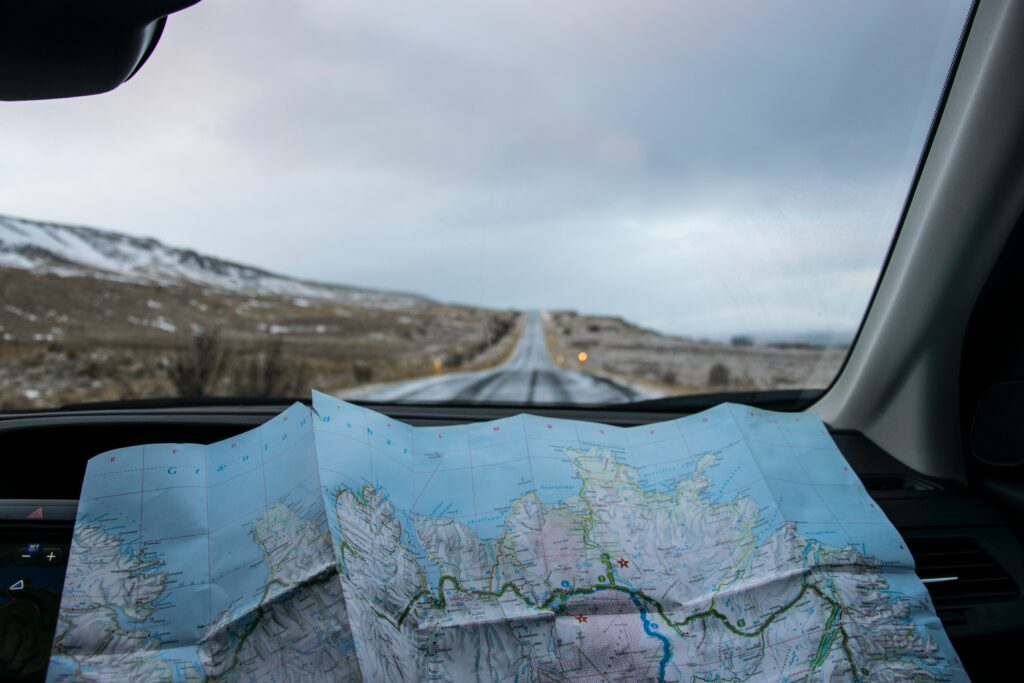
Principle ane: Plan Ahead and Set
Are you planning ahead and preparing for adventures?
Planning and preparing for an adventure not only keeps you lot prophylactic merely protects nature. Plus, you'll have more fun when you know what to expect and you're non calling Search and Rescue (who are already spread thin as it is).
Earlier you caput out on an adventure, ask yourself the post-obit questions to be all-time prepared:
1. What are your expectations for your gamble?
2. What are the cognition and skills of your grouping members that are applicable for this adventure?
3. How much do you know almost the area you're exploring? Is information technology decumbent to wink floods, avalanches, or droughts?
4. Do y'all have the proper equipment and gear for this chance? The 10 Essentials and what else?
5. What volition the conditions be like during your trip? Fix for the worst.
6. Are there any regulations, rules, or private land boundaries you need to be aware of? Ex: Burn restrictions, required permits, wild animals, etc.
7. How much nutrient, h2o, and supplies will y'all need? Only bring what you need just make certain it's enough.
8. Who have you told well-nigh your adventure, when you're leaving, who you lot're going with, when you plan to render, and what they should practice if you don't come back by the time you lot mention?
Daydreaming of your next gamble? Bank check out our web log, Planning For Your Next Adventure To Proceed The Stoke Alive .
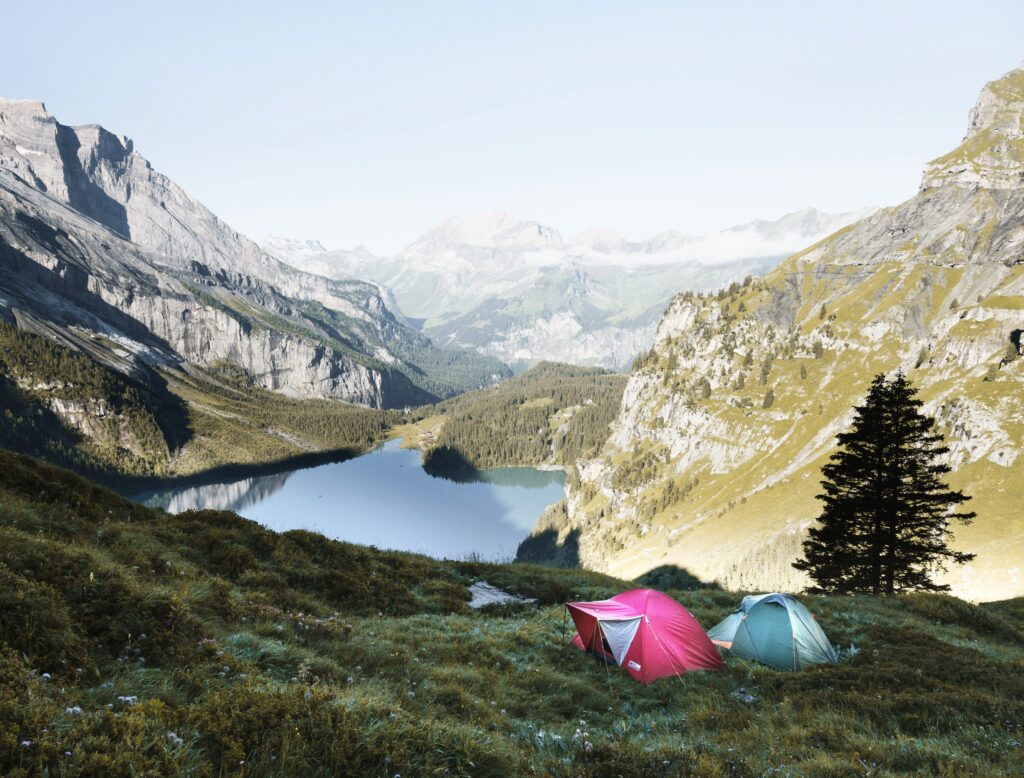
Principle 2: Travel & Camp on Durable Surfaces
Your run a risk may cause impairment to the surroundings if you're not post-obit Principle 2 of Go out No Trace: Travel and Camp on Durable Surfaces.
This principle focuses on exploring the outdoors without damaging land or waterways. When people trample vegetation, it damages the organisms, sometimes beyond recovery. And so we end upwardly with soil erosion, unnatural trails, and barren landscapes.
Here are iv trekking tips on your next adventure:
1. If a trail or campsite exists, stick to it. If there isn't a trail or campsite, attempt not to create one.
2. Consider where you're exploring and the surface durability. Unlike surfaces respond differently to travel. Rocks, sand, and gravel can handle a heavy load of trampling. Meanwhile, cryptobiotic soil is extremely vulnerable to pes traffic.
3. Cull a military camp in a heavy-use area or one with already depleted vegetation (and at to the lowest degree 200 feet abroad from water). This way, you lot're doing minimal harm to the surrounding surface area when setting up your campsite.
4. Merely camp in remote areas (aka – dispersed camping) if you lot're highly skilled in bushcraft, wilderness survival, and of grade, The Leave No Trace Principles.
To learn more about dispersed camping, here'south our introduction to it.
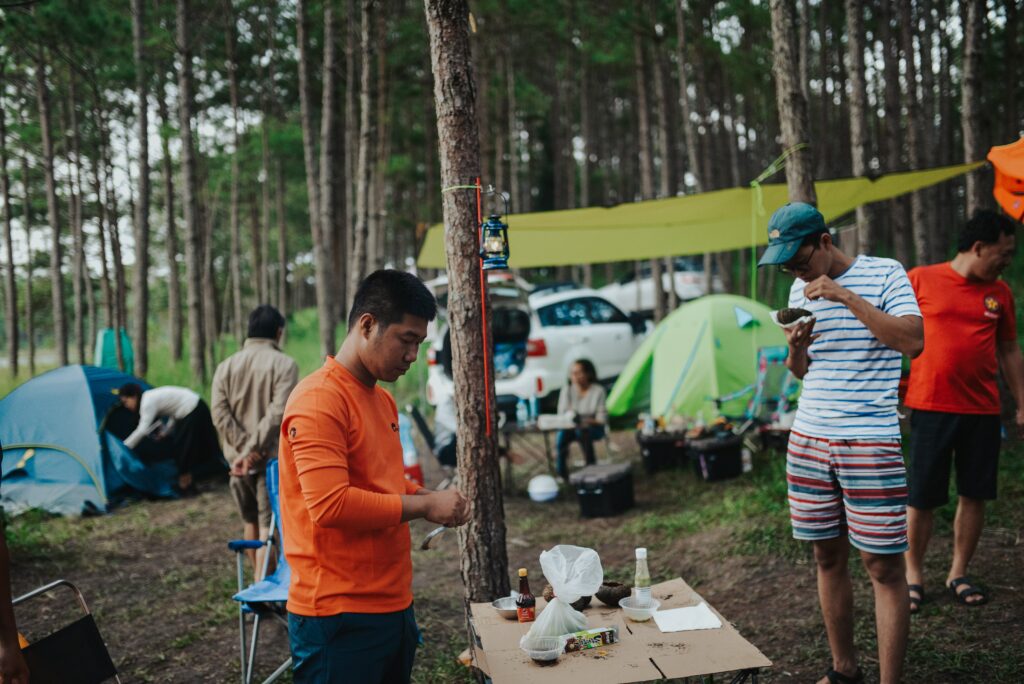
Leave No Trace Principle iii: Dispose of Waste Properly
Like they say, "Don't 💩 where yous eat."
Everybody poops, only not everyone does so responsibly in the outdoors. Like these people, who left their human being waste next to the lake.
Here's a minimal checklist for leaving nature better than yous establish it:
- Bank check for toilet facilities and trash receptacles.
- If there are none, eolith solid human waste in 6-eight inch-deep catholes, at least 200 anxiety from water, campsite, and trails.
- Pack out your toilet newspaper, all feminine products, and poop (if at that place are rules where you're exploring).
- Encompass and disguise the cathole when finished.
- Audit your military camp for any trash or leftover foods and pack it ALL out.
- If you find trash that isn't yours, pack information technology out with y'all besides.
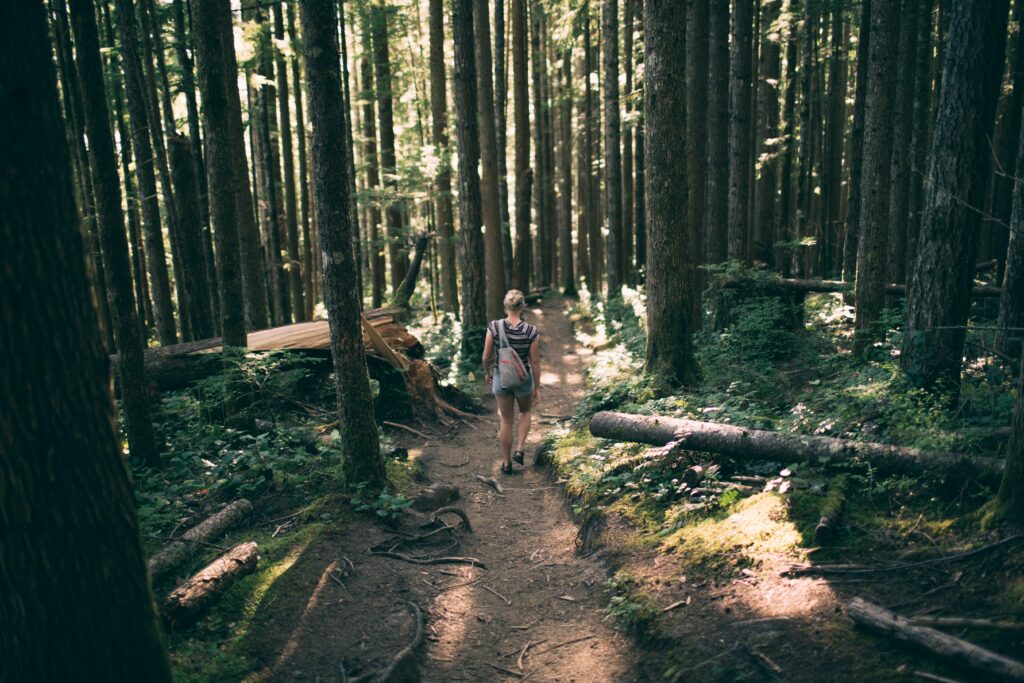
Principle iv: Go out What You Observe
Also known as, "You lot can look, just don't touch." Here are just a few of the do's and don'ts in the wild:
DO: Take pictures of landscapes, wildflowers, and cool things.
DON'T: Bring any of it with yous.
DO: Enjoy rocks and shells as they are.
DON'T: Collect or motion them.
DO: Detect a tree to relax under.
DON'T: Cleave your initials into them, hack at them with an ax or nail, or hang annihilation from them.
The take-dwelling message is to get out rocks, plants, and other objects the manner you institute them. Give the souvenir of discovery to future adventurers.
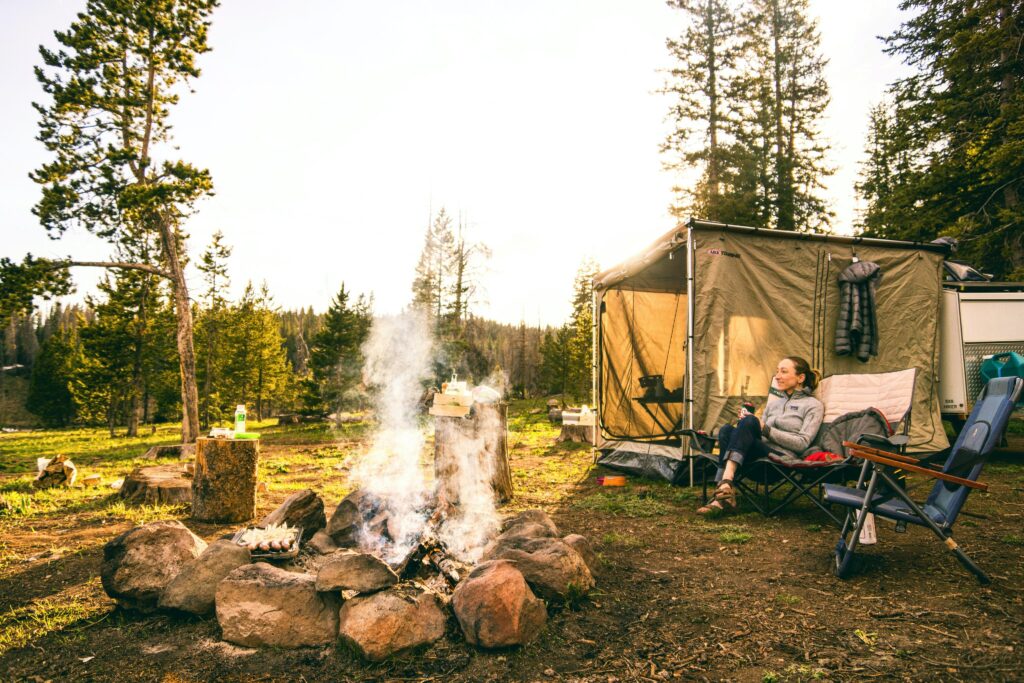
Principle 5: Minimize Campfire Impacts
What goes well with s'mores and ghost stories?
Existing fire rings
We dearest a proficient bivouac, but they tin as well exist 1 of the most destructive camping traditions.
If there'south an established burn down ring at your campsite and there isn't a fire ban in outcome, and so gather expressionless woods from the ground, and enjoy a small-scale (and supervised) burn down. When you're done, make sure you put out the fire completely.
Or, consider a camp stove. They're fast, flexible, and eliminate the need of a campfire.
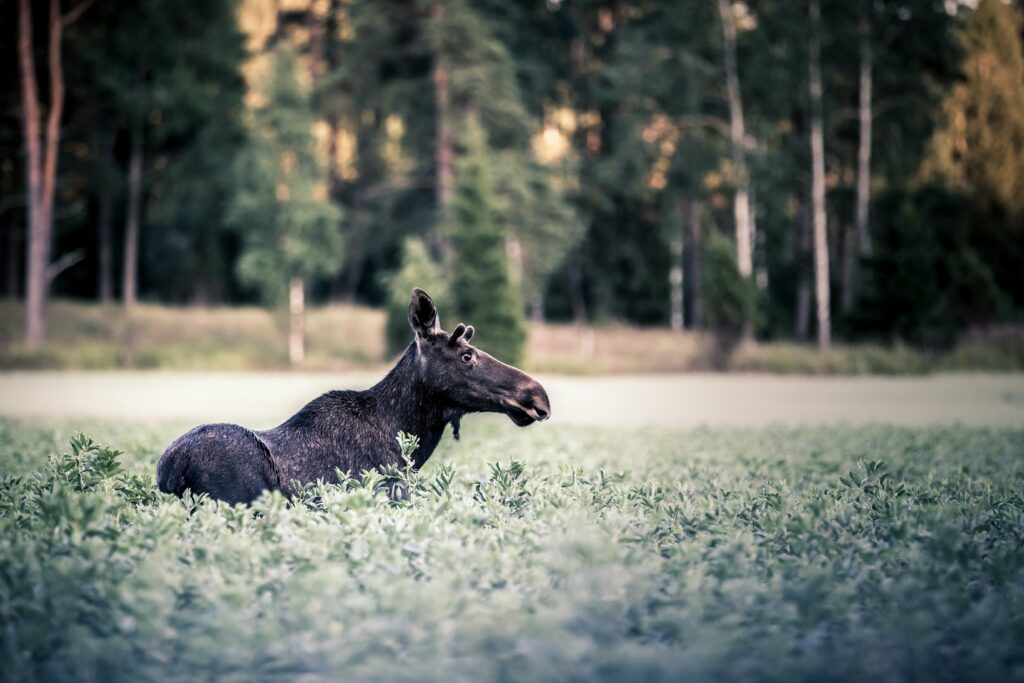
Principle six: Respect Wild animals
Whose dwelling house are you visiting when you're in the outdoors?
Wildlife.
Merely like we'd respect someone'south abode we're visiting, nosotros need to practice the aforementioned for animals.
Recall Principle 1 (Program Ahead and Prepare)?
Know what wild fauna to await where you're exploring and how to stay safe in their territory.
And and then leave them alone. Admire them from a distance.
It's as simple every bit that.
Don't feed, chase, arroyo, or disturb animals you encounter outside. You, the animate being, or both of you lot could get hurt.
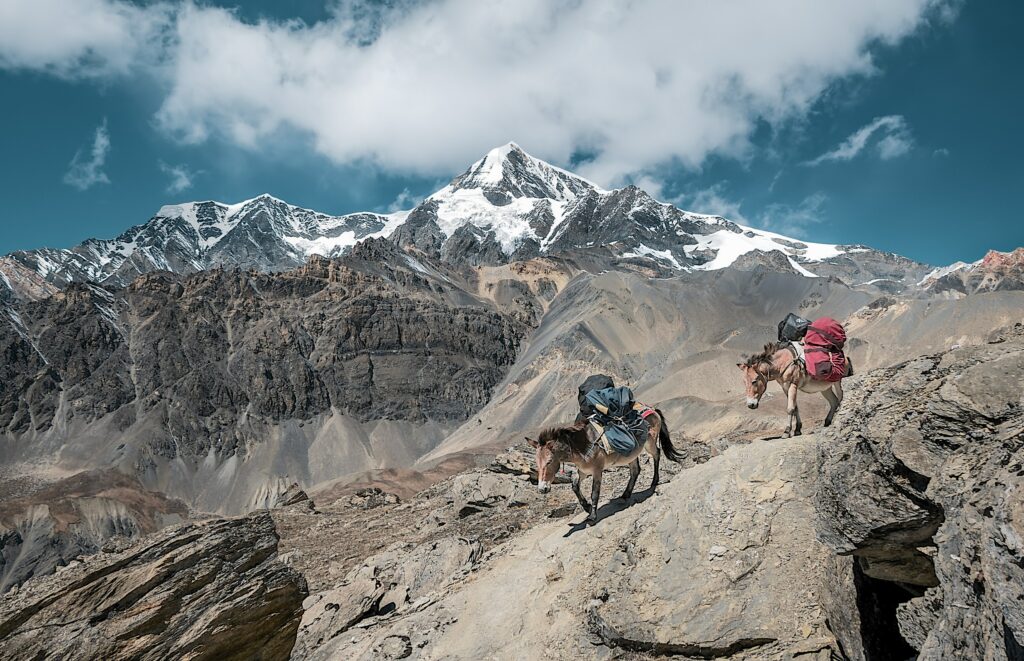
Principle seven: Be Considerate of Other Visitors
How to exist a good steward of the outdoors and lead by case:
1. Proceed your noise to a minimum. Anybody loves music, but non everyone loves your music.
2. If you're heading downhill, pull aside for hikers traveling uphill.
3. Hikers yield to equestrians. Bicyclists yield to both hikers and equestrians.
4. Keep pets under command at all times. If you can't keep them under control, get out Lassie at dwelling house. Finally, pick upwards their poop and pack it out with y'all.
v. Treat others the manner you'd like to be treated.
Everyone is entitled to (respectfully) enjoy the outdoors.
Want to be a good outdoor steward? Read about Minimizing Our Environmental Impact On Adventures on our weblog.
© 1999 past the Leave No Trace Center for Outdoor Ethics: world wide web.LNT.org.
Source: https://exploreorigin.com/blog/leave-no-trace-seven-principles/
0 Response to "Based on What You Have Read Which of the Following Exemplifies the Meaning of Leave No Trace"
Post a Comment